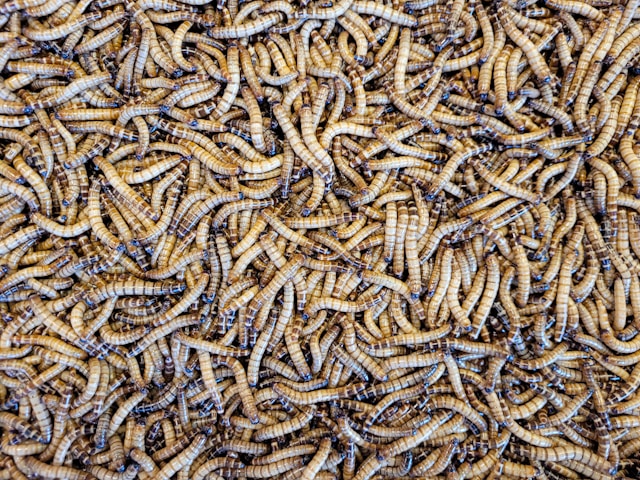As environmental concerns about food production rise, researchers and policymakers are looking for sustainable protein sources. Insects as a food option are gaining attention, despite their unappealing image to many Western consumers. A recent study indicates that integrating insect-based ingredients into common foods could help mitigate the “yuck factor” and promote this eco-friendly protein alternative.
Fortifying processed foods with insect flour could help avert “yuck feeling”
A study about attitudes toward eating insects presented at the European Congress on Obesity (ECO) showed that only 13% were open to regularly consuming insects, while 47% were opposed. Researchers suggested that using insect flours in processed foods like bread and pasta could reduce the disgust associated with eating whole insects.
Dr Maxine Sharps, study co-author from De Montfort University, said that incorporating insect flours into processed foods could help overcome the aversion to eating whole insects, as demonstrated by successful use in rice products fortified with cricket or locust flours in various regions.
Insects are a promising alternative to traditional livestock due to their high protein and micronutrient content, which can help address obesity and undernutrition. Most importantly insect proteins, like those from ground crickets or freeze-dried mealworms, are also more cost-effective and environmentally friendly to farm, often containing less fat and having a smaller environmental footprint.
Insect farming sustainable relative to livestock farming
Food production contributes significantly to human greenhouse gas emissions, with livestock being a notable source. In contrast, insect farming is more sustainable, requiring less land, water, and feed, while also producing fewer emissions. The United Nations Food and Agriculture Organization reports that insects emit 80 times less methane per kilogram of body weight compared to cattle.
While eating insects offers several benefits, it remains unappealing to many Western consumers. The study revealed that people generally have negative perceptions of insects’ taste and sensory properties, expecting less enjoyment and liking, and more savoriness, saltiness, and bitterness. However, researchers suggest that attitudes can shift over time, similar to how lobster and crayfish, once viewed as poor man’s food due to their insect-like appearance, are now regarded as delicacies in many regions.


